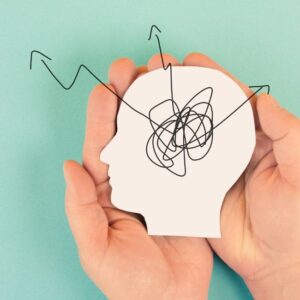For those of us who parent and are pulling our hair out – this article helps explain why autism and sleep problems have a high correlation with 8 tips to help.
While teenagers are notoriously night owls, sleep problems for those on the spectrum can be horrendous. Autistic children often have particular sleep and settling difficulties, including irregular sleeping and waking patterns. It might be lying awake until very late or waking very early in the morning. sleeping much less than expected for their age, or being awake for more than an hour during the night and not feeling rested in the day.
Add to that the gaming culture of being online with people around the world making it available 24×7, and being the parent/disciplinarian just gets worse.
WHY IS SLEEP PARTICULARLY DIFFICULT FOR THOSE WITH AUTISM?
Given this disruptive feedback loop, sleep problems are among the most urgent concerns for families grappling with autism. But so far, this also happens to be among the least-studied aspects of autism. The data suggests sleep problems are twice as common among children with autism as they are among typical children or those with other developmental conditions. Gastrointestinal problems such as reflux is also prevalent which also exacerbates the ability to stay asleep and in the case of our son, contributed to poor teeth!
On top of that the sensory difficulties of sleep is high for the autistic. Who of us haven’t tried heaters, air conditioners, weighted blankets, special lights, music, white noise, etc. And once these supports are established they’re really hard to manage later in life.
Studies suggest that individuals with autism are more likely than typical people to have mutations in genes that govern the sleep-wake cycle or those that have links to insomnia. Some studies suggest that people on the spectrum carry mutations that affect levels of melatonin, a natural hormone that controls sleep.
In non-autistic people, sleep issues are frequently associated with mood disorders such as depression and anxiety, and these disorders are more common among autistic people. So does sleep disruption in autistic people contribute to their high rates of depression and anxiety or vice versa?
MELATONIN OR NOT TO MELATONIN?
And at some stage in this journey someone in your medical support team has suggested melatonin supplements as an option.
Unfortunately it isn’t a magic bullet and it’s important that our kids know that and they don’t keep taking it thinking it is.
Like all drugs there can be issues taking Melatonin such as adverse effects. They tend to occur with higher doses or with supplements designed to provide extended release of melatonin. Aside from headache, dizziness, nausea, and daytime sleepiness, some studies have reported side effects like vivid dreams, nightmares, stomach cramps, irritable mood, and brief bouts of depression.
Our GP recommended to only take Melatonin for approximately 2 weeks then be off it for 2 weeks. Melatonin is a hormone and a powerful one — just like testosterone or estrogen. So don’t allow your child or young adult to use it like a headache tablet.
Melatonin is a hormone that your brain produces in response to darkness, priming your body for sleep. It helps with the timing of your circadian rhythms (24-hour internal clock) and with sleep.
Being exposed to light at night can block melatonin production eg. TV, phone, computer. So this means you must take the Melatonin at exactly the same time every night, (say 2 hours before bed) so that the brain gets into a routine.
It is not recommended to take Melatonin long term, but only for about 2 weeks initially. There is no data to back this up, but some experts think taking supplements may interfere with your natural melatonin production, as you’re signaling to your brain that it doesn’t need to make its own supply of the hormone anymore. In the UK , where melatonin is only available by prescription, the supplement is usually prescribed for one to four weeks. Some healthcare providers may even recommend taking melatonin two to three times per week, instead of every night.
While there doesn’t seem to be a risk of addiction, it’s all too easy to start feeling like you need to take melatonin for a good night’s sleep.
SLEEP HYGIENE – IT’S A RITUAL
Sleep Hygiene is something often talked about, which really just means a ritual. We do this with toddlers:
- Time to have a bath and put pajamas on
- Clean teeth
- Read a book (with low lights not overhead lights on)
- Maybe listen to a story or relaxing music or white noise, or a meditation to relax the body and stop chattering thoughts, etc.
It’s important to remind our young adults that this ritual is important and they need to keep doing it.
Here are some other rituals you can do:
- View sunlight by going outside within 3-60 minutes of waking. Do that again in the late afternoon, prior to sunset. (Easier now it’s getting warmer).
- Wake up at the same time each day and go to sleep when you first start to feel sleepy.
- Avoid caffeine within 8-10 hours of bedtime.
- Avoid viewing bright lights—especially bright overhead lights between 10 pm and 4 am.
- Limit daytime naps to less than 90 min, or don’t nap at all.
- If you wake up in the middle of the night (which, by the way, is normal to do once or so each night) but you can’t fall back asleep, consider doing an NSDR meditation when you wake up. Enter “NSDR” into YouTube and the top 3-4 options have different voices and durations for you to select from. Or simply do a “Yoga Nidra” meditation (enter “Yoga Nidra” to YouTube; 100s to select.)
- Expect to feel really alert ~1 hour before your natural bedtime. This is a naturally occurring spike in wakefulness that sleep researchers have observed. Don’t freak out if it happens. It will pass!
- Keep the bedroom cool and dark and layer on blankets that you can remove. Your body needs to drop in temperature by 1-3 degrees to fall and stay asleep effectively. Body temperature increases are one reason you wake up. So, keep your room cool and remove blankets as needed. If it’s too hot you would have to use a cooling device and that’s harder than simply tossing off blankets if you get too warm.







